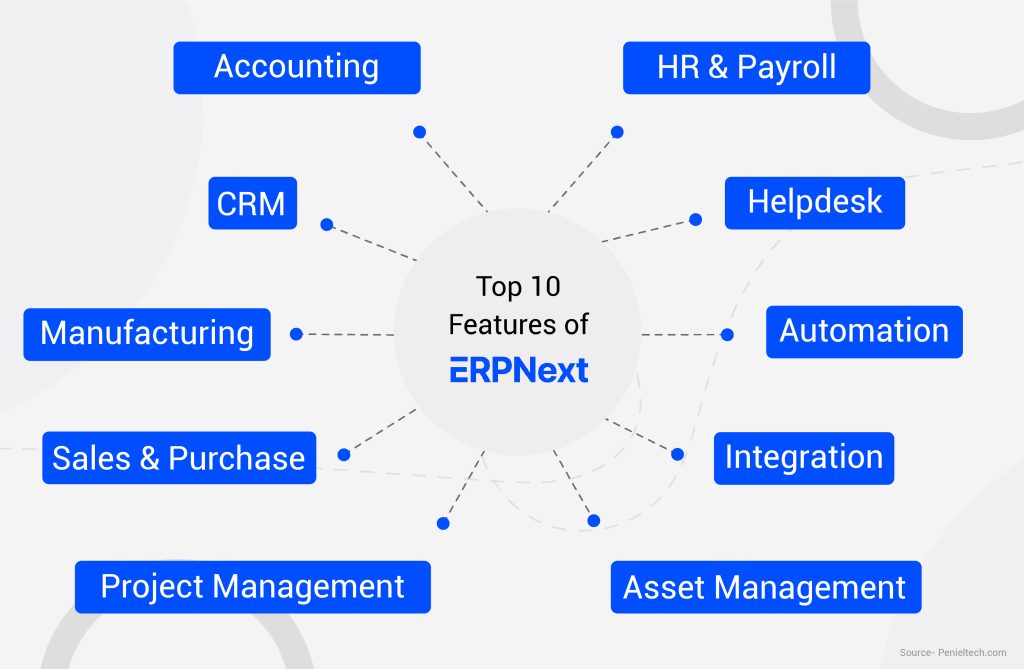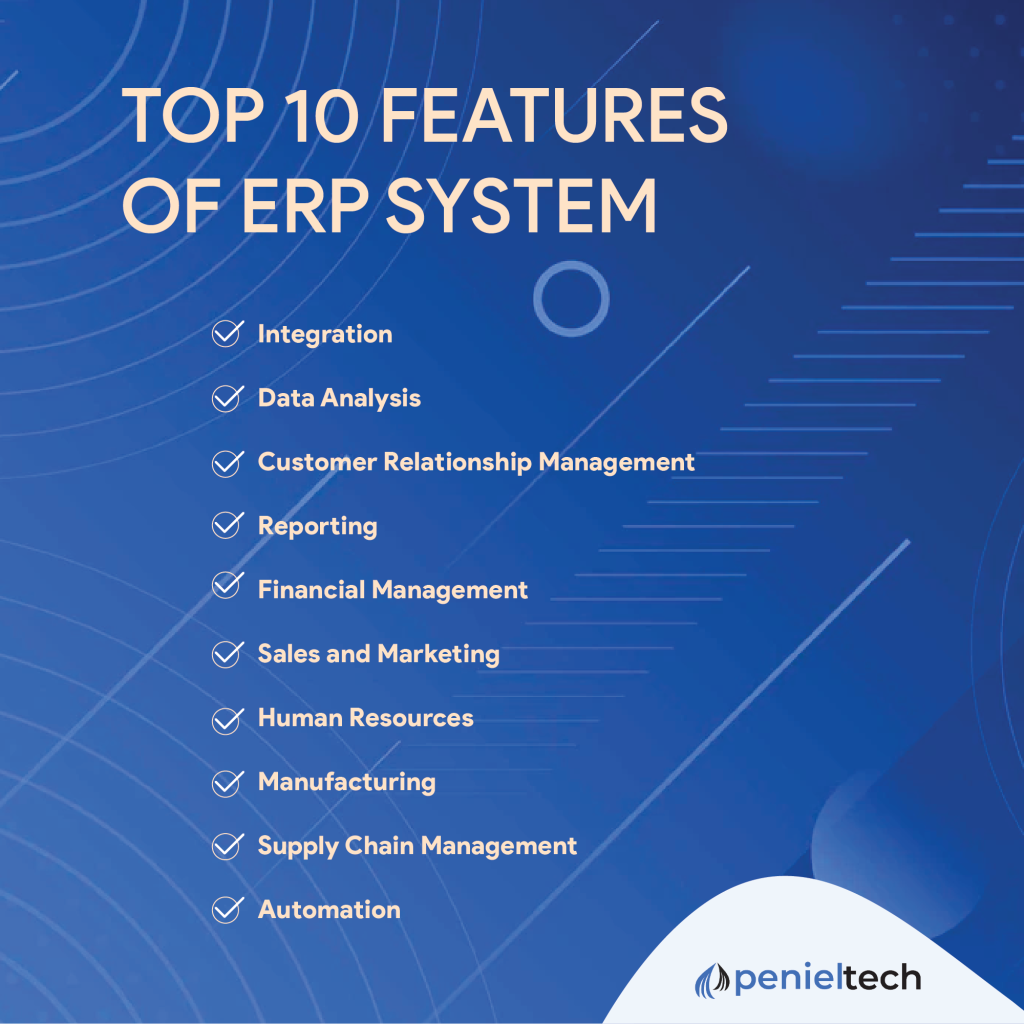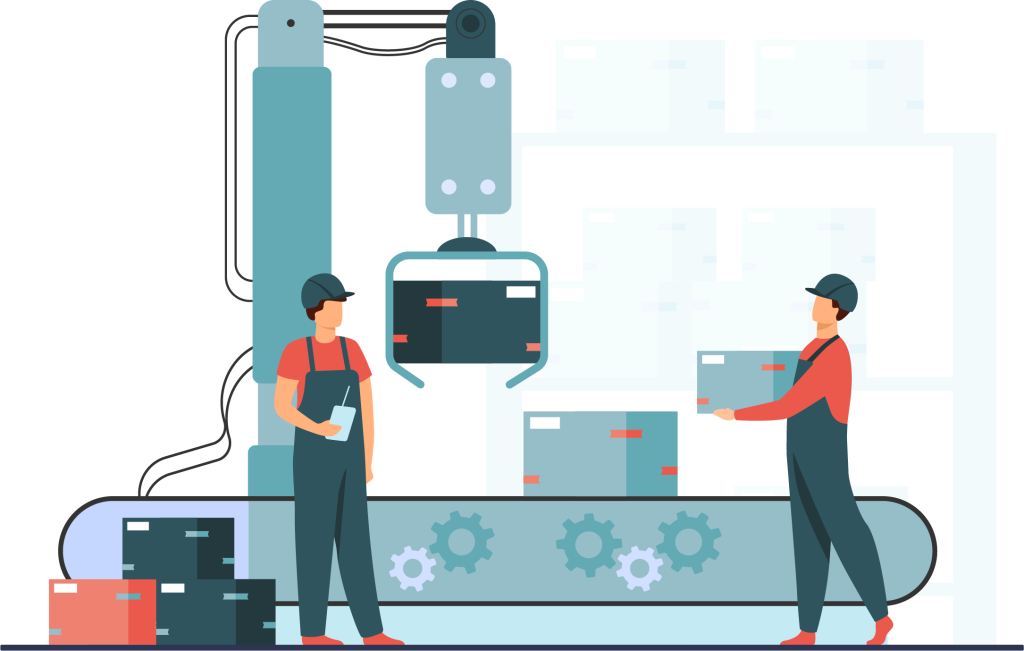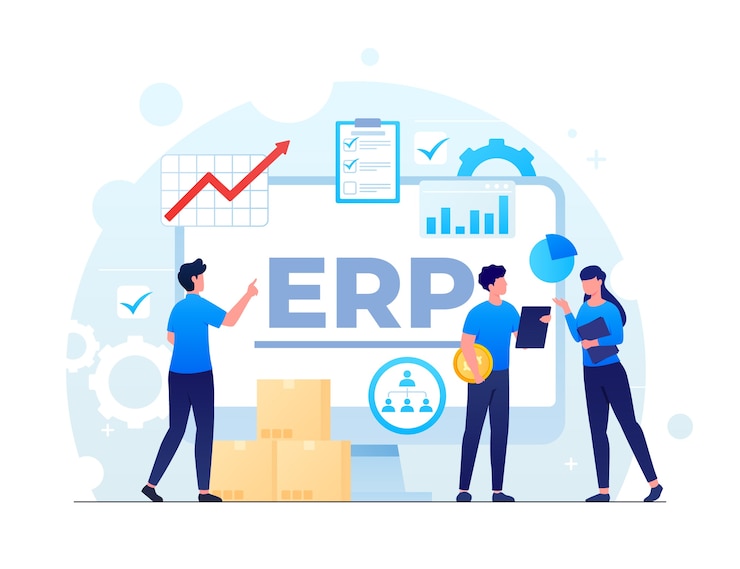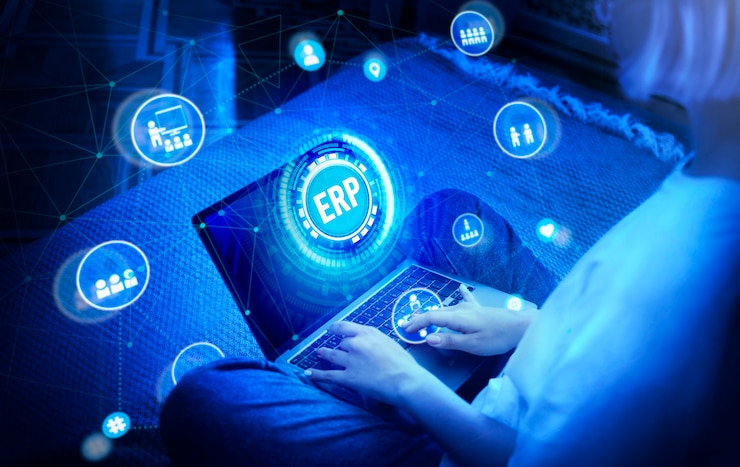The implementation of an ERP system is a significant task. It is costly, time-consuming, and hard for an IT department to do. Potential delays and costs are all too prevalent, unfortunately. The more you and your business prepare for it, though, the less of a strain it will be.
ERP deployment is, understandably, disruptive. Given that ERP systems have the potential to improve practically every facet of your organization, touching every single department and assisting your company in being more successful. Things that are good do not come easily, and if they did, they would be ineffective. Businesses must be honest with themselves and embrace the fact that it will be difficult. Prepare for interruption and choose whether you are prepared to accept it.
What is ERP implementation
In order to provide benefits like higher production and efficiency, an ERP system connects a number of corporate operations, including financial management, human resources, sales, and manufacturing. ERP implementation refers to the process of designing, configuring, and installing an ERP system. The procedure normally lasts a few months and is complicated since an ERP Software supports and automates several operations.
Spending countless amounts of money, time, and resources to replace an existing system with a similar one does not make sense if it is not meeting the demands of your business and replacement is a viable option. However, many businesses have done just that: purchased a new system and then tailored and/or modified it to appear, feel, and perform exactly like the previous system.
Maintaining Sanity while ERP Implementation
Avoid contaminated Data
Dirty data occurs when people disregard data entry rules, when data is entered inconsistently, and when codes and data standards “drift” over time.
There are two ways in which migration can occur:
- Data in the legacy system can be cleansed before being moved to the new system.
- Data may be cleansed on the route to the new system by creating data transformation matrices.
There is no really effective technique to rapidly and correctly dirty data that has been subjected to a ringer. Rather, sanitise the data in the legacy system before migrating it wherever possible.
Create a Project Management Plan.
Well-planned project management is required to meet corporate objectives, resolve challenges quickly and effectively, and ensure overall implementation success in ERP software UAE.
Before beginning the project, the project manager and implementation team should have a solid understanding of the company’s goals and best practises, which may have been set by higher management or other departments involved.
Determine your needs.
When selecting an ERP solution, look for software that is tailored to the needs of your company and industry. Look for functionality that addresses your main business operations and requirements. Spend some time documenting the existing pain points and challenges you and your team are experiencing with your present systems.
Solicit feedback from your team and priorities the effect of existing concerns. If you’re not sure where to begin, chat to the ERP software Dubai Provider you’re thinking about working with. They frequently have a wealth of expertise and suggestions on things to think about. Consider your connection with the ERP supplier to be a collaboration that can help your deployment succeed.
Best Practices to Work
Tailoring or altering the new system to be identical to the old one will not result in improved operational performance or different results. That type of endeavor would be tough to justify in terms of ROI.
Don’t reject “best practices” as being too mundane to need consideration. They are referred to as best practices since they are effective. And, if your rivals are utilizing them to effectively compete against your firm, adopting such practices may just put your company back into parity, because it is a terrific starting point for future changes that can propel your company’s success ahead.
Conclusion
Choosing the correct ERP software in UAE and successfully installing it remains one of the most difficult challenges for enterprises, as it demands meticulous preparation and the full commitment of all stakeholders.
Whatever ERP system you pick, the following are some best practises for its implementation:
- Identifying as well as developing key performance indicators for each business process.
- Putting together a project team to oversee the implementation process.
- Creating a solid, methodical method for moving data to a new ERP system.
- Creating a trustworthy work environment that allows for simple collaboration and feedback.
- Maintaining staff training and support.
- Gathering input and changing the implementation approach in response.
- Creating a project management strategy to guarantee that the ERP system meets the demands of the organization.
ERP Software Dubai
Penieltech strives to empower small to large businesses by providing them with the most adaptable and affordable ERP Software in UAE. Through this ERP software, Penieltech gives you complete control over your business activities. From trade to development, we include all main sectors in Dubai and the UAE to provide tailored solutions that contribute to the industries’ quick growth. Whether you are a little business or a Fortune 500 corporation, we have the ideal ERP solution in Dubai to satisfy all of your needs. Click here to Free ERP Consultation.
